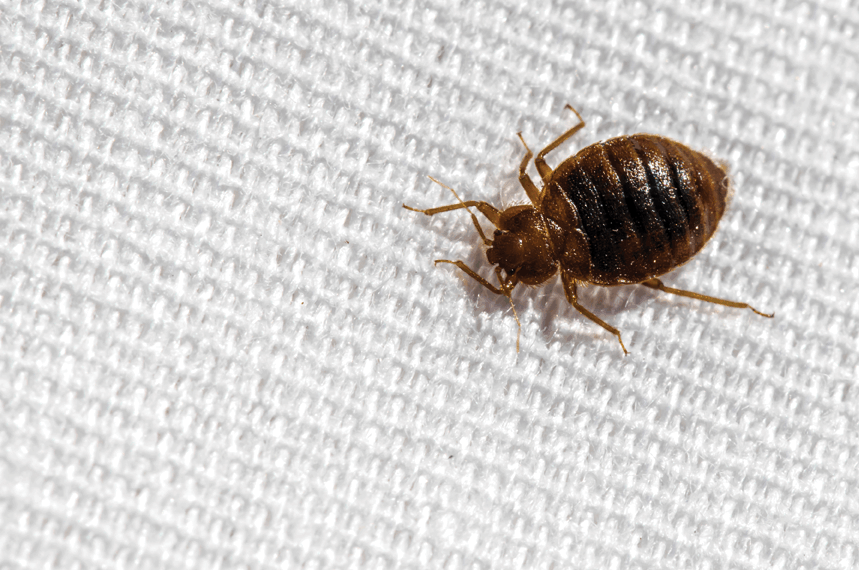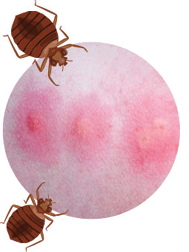
By Chelle Hartzer, B.C.E.
In the September 2020 issue of PCT, I wrote about recent scientific research that had been published on bed bugs and how those facts might help your treatments. This month, let’s look at the other side: the misinformation and myths that are floating around. Some of these stories are amazing, some are just wrong, and some are downright scary.

Bites are in threes. This myth is about a bed bug probing twice before fully inserting its mouthparts to feed. There are a few other versions of this theory, including that bed bugs only bite in a line and bed bugs always bite multiple times. The truth is, bed bugs may sometimes probe but most often just jab their little mouthparts in and start sucking up blood. Unless they are disturbed, they only feed once a night. They don’t need to feed multiple times in one night. The one partial truth to this is that people may find “lines” of bites. Bed bugs go for exposed skin; they don’t work to get under clothes. As a result, people may find these lines of bites around collars, cuffs or wasitbands, because that’s the area multiple bed bugs were able to easily access.
A bed bug bite is distinctive. There is no way to tell what creature bit or stung a person unless you visually see it. The CDC says, “Because bed bug bites affect everyone differently, some people may have no reaction and will not develop bite marks or any other visible signs of being bitten.” Studies vary but an estimated 30 percent of the population has no reaction to bed bug bites at all. Many of you have probably received pictures from a customer, or worse, had them start to peel off clothing to ask, “Is this a bed bug bite?” The correct answer to this question is that there is no way to tell and they should see a medical professional if they have concerns.
They only infest “dirty” places. My dad told me once there was no way he could get bed bugs because he only stayed in “nice” places. Bed bugs don’t care how many times you shower, that you clean all your dishes as soon as you are done with a meal or that housekeeping takes good care of the rooms. Bed bugs are after their next meal, and since everyone has blood, everyone is susceptible. People are just as likely to pick up bed bugs at a five-star hotel as they are at a no-star hostel. The difference is typically how quickly a particular location reacts to a bed bug issue. Those sites with more resources and that are more invested in their online reviews are likely to jump on a bed bug issue as soon as they are aware of it. Those with fewer resources will try the DIY route, and the problem can get significantly worse before they call in the professionals.

There’s a distinctive smell. One news article I read said that if “you go somewhere there are bed bugs, the smell will be immediately obvious.” Immediately? Those of you who work with bed bug canine teams know a dog can definitely sniff out a bed bug. Bed bugs have aggregation pheromones that do have an odor. In light infestations, this odor can’t be picked up by humans. In heavy infestations, there is absolutely a smell. Is that smell bed bugs though? For those of us who have dealt with a massive infestation, we know as soon as we walk into that home or apartment that something is definitely not right. There are usually sanitation issues, often cockroaches or other pests, and perhaps other issues. It is not likely the bed bugs are putting off that eau de parfum; it’s probably all the other issues.
OTC products are just as good. I know I’m preaching to the choir here. You, the pest management professionals, know this yet the customer may believe that over-the-counter products work just as well as the products we use. When someone posts online to that neighborhood message board or starts spouting their home remedy at the next backyard BBQ, take the opportunity to (gently!) educate them on this. Scientific studies have shown that the products most DIYers can buy are all pyrethrum-based, which bed bugs are now resistant to. Also, “bug bombs” can be very dangerous, and news reports abound on homes and apartments catching fire or even blowing up.

Explore the March 2021 Issue
Check out more from this issue and find your next story to read.
Latest from Pest Control Technology
- Video: PCT 2026 Best Pest Photo Contest Finalists Slideshow
- Hundreds of PMPs Attend NCPMA’s 76th Pest Control Technician's School
- Linxup Survey Examines How High-Performing Fleets Organize Operations
- Redd Pest Solutions Announces Leadership Appointments and Promotions
- Scott Broaddus Provides Insight Into D2D Sales in Pest Control Industry
- Expert Explains Falling Iguana Phenomenon
- BOM President Reflects on Five Years of Growth, Future Plans
- Moxie Pest Control Awards $200,000 Grant to AFSP





